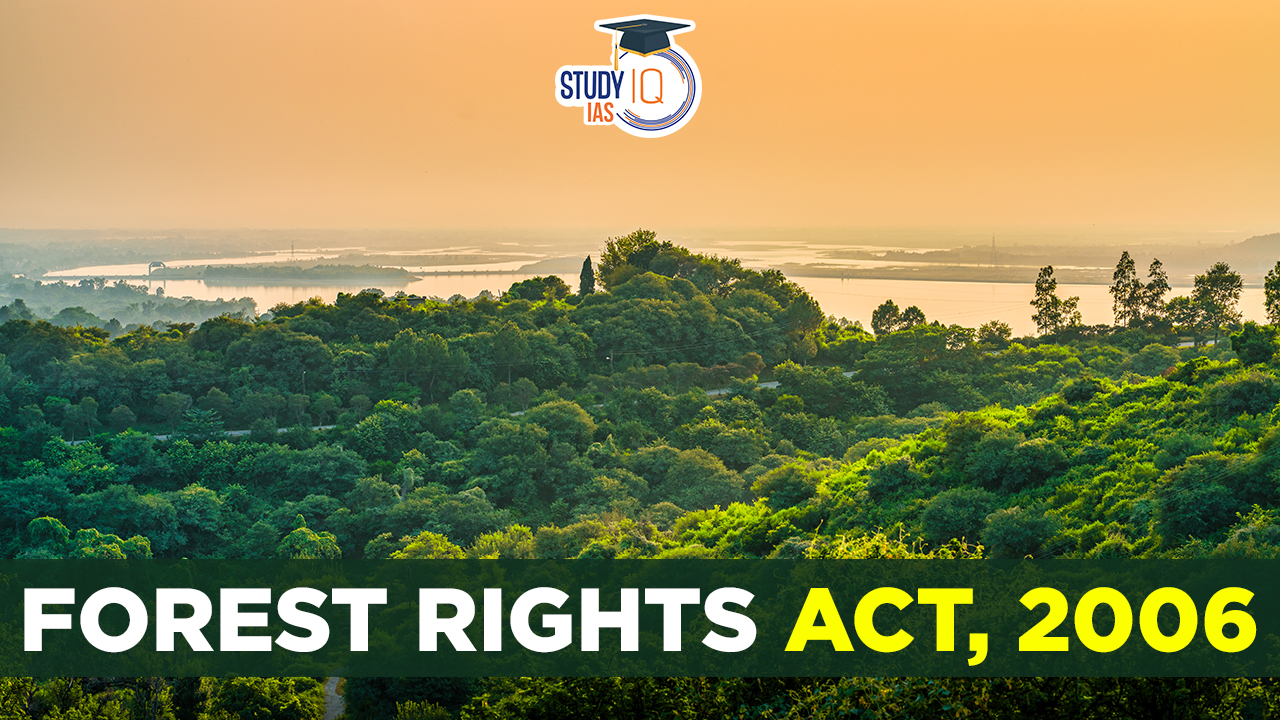Table of Contents
Context: The Andaman and Nicobar Islands administration is accused of giving a false report to the Centre that tribal forest rights under the Forest Rights Act (FRA), 2006 were settled for the ₹72,000-crore Great Nicobar project, though tribal representatives say their rights remain unresolved.
About Forest Rights Act 2006 (FRA, 2006)
- Forest Rights Act 2006, officially called the Scheduled Tribes and Other Traditional Forest Dwellers (Recognition of Forest Rights) Act, 2006.
- Aims to correct the historical injustice faced by forest-dwelling communities.
- Recognises the rights of tribals and traditional forest dwellers over land and forest resources they depend upon.
- Ensures livelihood security while promoting sustainable forest management.
Need for FRA, 2006
- Tribals share a close cultural and livelihood relationship with forests.
- Colonial rule and post-Independence policies alienated tribals from forests.
- Non-recognition of ancestral rights led to displacement due to developmental projects.
- FRA enacted to:
- Re-recognise the forest rights of tribals.
- Protect their symbiotic relationship with forests.
- Balance livelihood security with conservation.
Objectives of FRA, 2006
- Empower local self-governance
- Secure livelihoods of forest-dependent communities → reduce poverty.
- Strengthen conservation and sustainable use of forests.
- Promote inclusive natural resource governance.
Key Provisions of FRA, 2006
- Recognises rights to live on and cultivate forest land for livelihood.
- Provides rights over forest resources, such as:
- Ownership and use of minor forest produce (MFP).
- Community rights (e.g., Nistar).
- Habitat rights for primitive and pre-agricultural communities.
- Rights to protect, regenerate, conserve, and manage community forest resources.
- Allows diversion of forest land for essential public utilities (schools, dispensaries, electricity, water, telecom etc.) with Gram Sabha approval.
- Forest rights adjudication through Gram Sabha → Sub-Divisional Committee → District Level Committee.
Rights Given to Forest Dwellers under FRA
Land Rights
- Ownership of cultivated forest land (up to 4 hectares).
- Valid for cultivation done before Dec 13, 2005.
- Documentary proof is not mandatory.
Use Rights
- Collect and use minor forest produce (herbs, tendu leaves, medicinal plants, etc. – excluding timber).
- Access to grazing grounds and water bodies.
- Rights over traditional use areas of pastoralist/nomadic communities.
Community Rights
- Right to manage and protect forests, wildlife, and biodiversity.
Protection from Displacement
- No arbitrary eviction from national parks or protected areas without due process.
Challenges & Issues in Implementation
- Lack of Awareness: Tribals are often unaware of their rights → vulnerable to exploitation.
- Conflicts with Other Laws: Overlaps with the PESA Act, 1996 and the Joint Forest Management practices.
- Weak Institutional Capacity: MoTA (nodal ministry) lacks sufficiently skilled staff for FRA implementation.
- Wrongful Rejections: Many claims were rejected due to poor verification processes.
- Inactive Vigilance Committees: State-level monitoring is often ineffective.
- Bias towards Individual Rights: Most titles issued are individual, with only ~4% community-based.
- Legal Complexity: Govt. introduces new rules/laws instead of fixing FRA’s implementation issues → creates overlapping legal frameworks.


 World Wetlands Day 2026: Theme, History,...
World Wetlands Day 2026: Theme, History,...
 Geological Heritage Sites of India: Sign...
Geological Heritage Sites of India: Sign...
 Wildlife Sanctuaries of India 2026: List...
Wildlife Sanctuaries of India 2026: List...

























